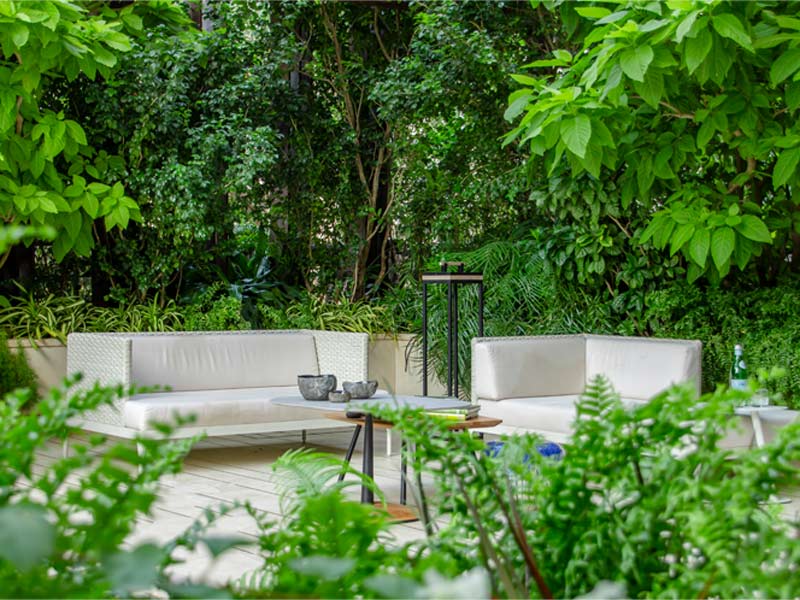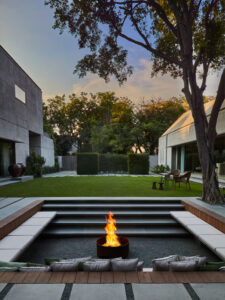
Introduction
As the outdoor season unfolds, the canvas of nature beckons us to explore the realm of landscape design. Beyond the functional aspects, landscape design is an art form that transforms outdoor spaces into harmonious havens. At Design Indian Home, we delve into the intricacies of crafting nature’s canvas, unveiling the artistry that breathes life into your outdoor environment.
The Essence of Landscape Design
Beyond Greenery
Landscape design transcends the mere placement of plants; it’s a thoughtful composition that considers elements such as layout, balance, and focal points. It’s about creating an immersive experience where every feature contributes to the overall aesthetic.
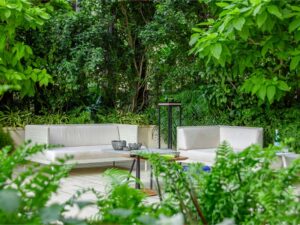
A Symphony of Elements
Much like an artist combines colors on a palette, a landscape designer orchestrates a symphony of elements. From plants and hardscapes to water features and lighting, each element plays a crucial role in creating a cohesive and visually pleasing outdoor space.
Designing for Functionality
Outdoor Living Spaces
In the realm of landscape design, functionality is paramount. Outdoor living spaces seamlessly integrated into the design provide areas for relaxation, entertainment, and dining. Thoughtful placement of furniture and amenities transforms your backyard into an extension of your home.
Pathways and Connectivity
Well-designed pathways not only connect different areas of your landscape but also contribute to the overall visual appeal. Whether it’s meandering stone paths or geometric pavers, pathways guide the eye and invite exploration.
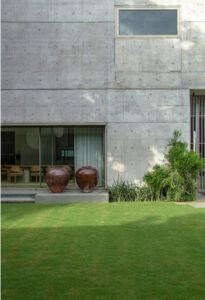
Focal Points and Points of Interest
Strategic Planting
Strategically placing plants of varying heights and textures creates visual interest and focal points. Consider incorporating flowering plants, ornamental grasses, and evergreens to add depth and dynamism to your landscape.
Artistic Hardscapes
Hardscapes, such as pergolas, statues, or artistic installations, serve as focal points that anchor the design. These features not only add a touch of artistry but also provide structure and coherence to the overall landscape.
Harmony in Plant Selection
Native Flora for Adaptability
Opting for native plants not only ensures adaptability to the local climate but also promotes biodiversity. Native flora harmonizes effortlessly with the natural surroundings, creating a landscape that feels inherently connected to its environment.
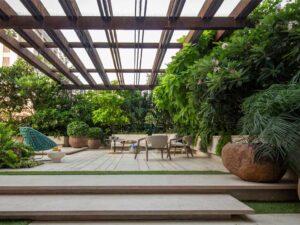
Layering for Dimension
Layering plants based on height and density adds dimension to your landscape. Tall trees provide a canopy, shrubs offer mid-level structure, and ground covers create a lush carpet. This layering technique adds visual interest and a sense of fullness to the design.
Sustainability in Landscape Design
Water Conservation
Incorporating water-efficient landscaping practices, such as drip irrigation and selecting drought-resistant plants, contributes to sustainability. This not only conserves water but also creates a landscape that thrives with minimal environmental impact.
Eco-Friendly Materials
Choosing eco-friendly materials for hardscapes and structures aligns with sustainable landscape design. Recycled or reclaimed materials not only reduce environmental impact but also add character and uniqueness to your outdoor space.
Seeking Professional Guidance
Consultation with Design Indian Home
For a landscape design that harmonizes with your vision and the natural surroundings, consider consulting with the experts at Design Indian Home. Our landscape designers can provide personalized recommendations tailored to your preferences, ensuring a seamless blend of artistry and functionality.
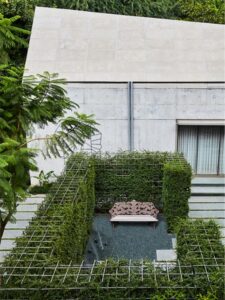
Concluding the Landscape Symphony
In conclusion, landscape design is an art form that transforms outdoor spaces into symphonies of artistry and functionality. From strategic plant selection to creating focal points and incorporating sustainable practices, each element contributes to the overall composition. Trust Design Indian Home to guide you through the creation of your landscape symphony, where nature’s canvas becomes a masterpiece of harmony and beauty.
With this comprehensive guide spanning over 600 words, you now have insights to embark on the journey of crafting a landscape that not only delights the senses but also becomes a reflection of your style and appreciation for the artistry of nature.
